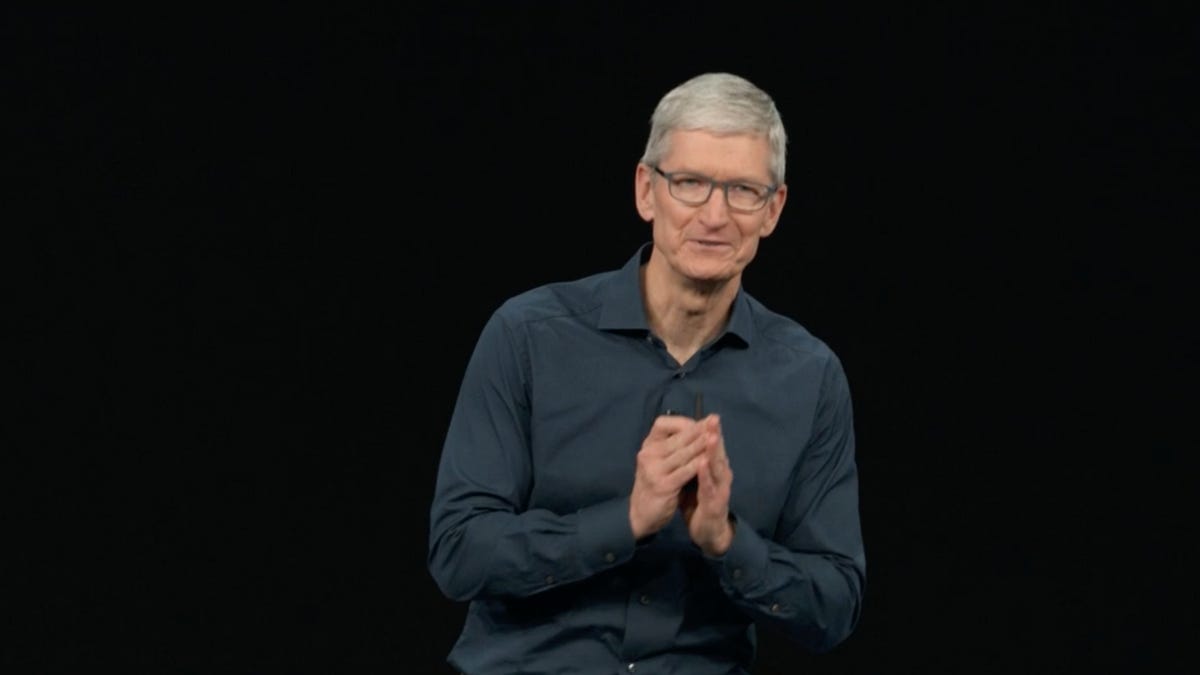Privacy takes a backseat during Apple product reveal
The security of your information is just another feature for Apple products.

Apple CEO Tim Cook on stage at the Apple product announcement event Wednesday.
Apple has made a name for itself with its efforts to protect user privacy , even taking on the federal government.
That's why it was notable that the company didn't make any major statements about keeping your data safe at its big product reveal event on Wednesday, when it introduced the iPhone XS line, the iPhone XR and the Apple Watch Series 4.
Sure, the security of your health data on Apple Watch came up. So did the Secure Enclave on Apple's A12 microprocessor, which protects the Face ID biometric login system. But there was no major privacy focus. The biggest statement on privacy came from Apple's chief operating officer, Jeff Williams.
"We believe your personal information belongs to you," he said. "You should decide who you share it with and who gets to see it, period."
That broad statement led into a minor announcement that your health data on Apple Watch, which is now capable of taking an electrocardiogram while on your wrist, is encrypted both on the device and in the cloud.
In short, Apple presented privacy on Wednesday as just one more thing the latest iPhones and Apple Watch can give you, alongside a bigger display, longer battery life and computer-driven photography.
That departs from Apple's past public statements on privacy, which have painted keeping your data safe as one of the company's most important values. In 2016, the company refused to write code that would let the FBI access the iPhone 5C of a mass shooter, arguing that the code's very existence would put other iPhone users at risk from hackers. And in June, the company announced it would introduce features in its Safari browser that could disable tracking tools used by fellow tech giants like Facebook and Twitter to keep tabs on users' browsing habits.
The company has taken that approach since news broke five years ago of the NSA's dragnet surveillance programs, which relied on a flow of information from tech companies -- some of which required tech giants to provide user information and some of which relied on weaknesses in their systems to collect it without companies knowing.
Apple user data that remains on iPhones can't be easily handed over to governments or hacked from Apple's servers. Apple can hand over data that users upload data to their iCloud accounts, and iPhones typically sync to those accounts by default, but users can opt out. What's more, the company says it works to anonymize the data it uses to personalize apps and target advertising.
The approach put Apple ahead of the game when Facebook was caught up in a data privacy scandal this April that left consumers increasingly uneasy with just how much data Silicon Valley companies are collecting on them, and sharing with third parties.
On Wednesday, those anxieties received no more than a few nods. Calling Face ID "secure and seamless," Apple CEO Tim Cook said of the login technology, "It is the most secure facial authentication ever in a smartphone."

